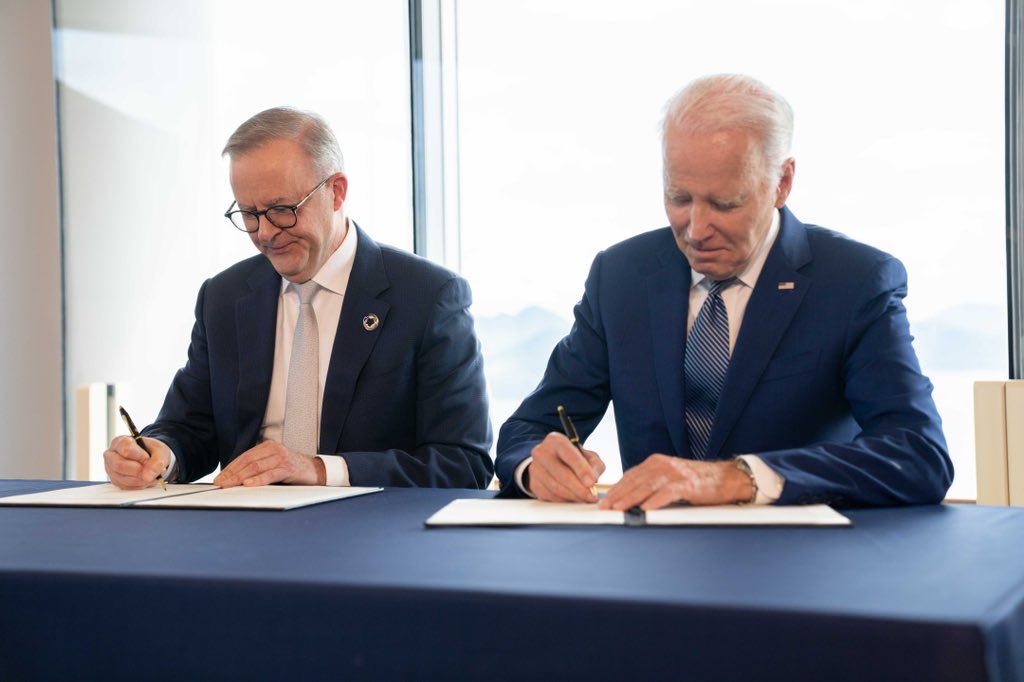The draft rules, issued by the US Department of Energy on Monday, outline that enterprises “owned by, controlled by, or subject to the jurisdiction or direction” of China, Russia, North Korea or Iran, will not be eligible for subsidisation under the nation’s USD 369 billion ($550 billion) Inflation Reduction Act nor the USD 550 billion Infrastructure and Jobs Act.
The upper limit of both direct stakes or “cumulative” investment is 25%, according to the draft guidance.
China is far and away Australia’s biggest trade partner, including for lithium and other critical minerals. China’s dominance in the sector, and therefore expertise, has meant a number of Australian projects have substantial Chinese ties. These ties come in the form of Chinese project ownership, investment and off-take agreements.
For instance, Western Australian project Greenbushes, which produces most of Australia’s lithium, is owned by Chinese company Tianqi and US giant Albermarle. Tianqi also holds a majority stake in the Kwinana lithium hydroxide refinery, which produced Australia’s first commercial quantities of battery-grade lithium hydroxide in 2022.
Australia pinned much of hope on the massive US subsidisation policies, which seek to secure renewable supply chains away from China, among other things. As a free-trade partner to the US, Australia had hoped to be treated as a ‘domestic supplier’ and therefore eligible for the IRA’s generous tax incentive scheme. This still may be possible for companies like Liontown Resources.
Despite talk that Australia’s Department of Foreign Affairs and Trade have been working on clarifying Australia’s role from within the US for the last six months, no definitive explanation has arrive to date.
The US DOE draft rules also extend the interpretation of foreign control to include what it deems as “‘effective control’ through contracts or licenses with a FEOC [Foreign Entity of Concern].”
It adds: “With respect to the critical minerals, battery components, or battery materials of a given battery, the entity has entered into a licensing arrangement or other contract with another entity (a contractor) that entitles that other entity to exercise effective control over the extraction, processing, recycling, manufacturing, or assembly (collectively, “production”) of the critical minerals, battery components, or battery materials that would be attributed to the entity.”
This content is protected by copyright and may not be reused. If you want to cooperate with us and would like to reuse some of our content, please contact: editors@pv-magazine.com.









4 comments
By submitting this form you agree to pv magazine using your data for the purposes of publishing your comment.
Your personal data will only be disclosed or otherwise transmitted to third parties for the purposes of spam filtering or if this is necessary for technical maintenance of the website. Any other transfer to third parties will not take place unless this is justified on the basis of applicable data protection regulations or if pv magazine is legally obliged to do so.
You may revoke this consent at any time with effect for the future, in which case your personal data will be deleted immediately. Otherwise, your data will be deleted if pv magazine has processed your request or the purpose of data storage is fulfilled.
Further information on data privacy can be found in our Data Protection Policy.